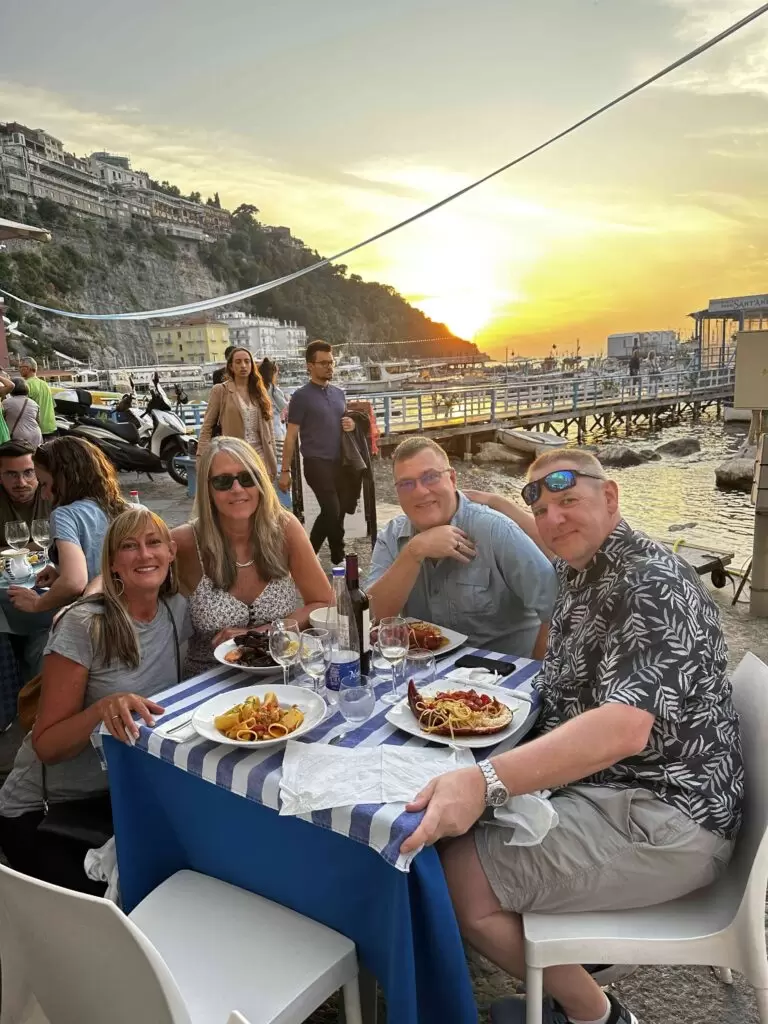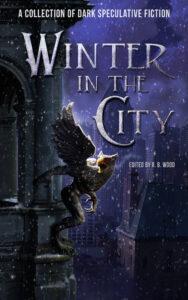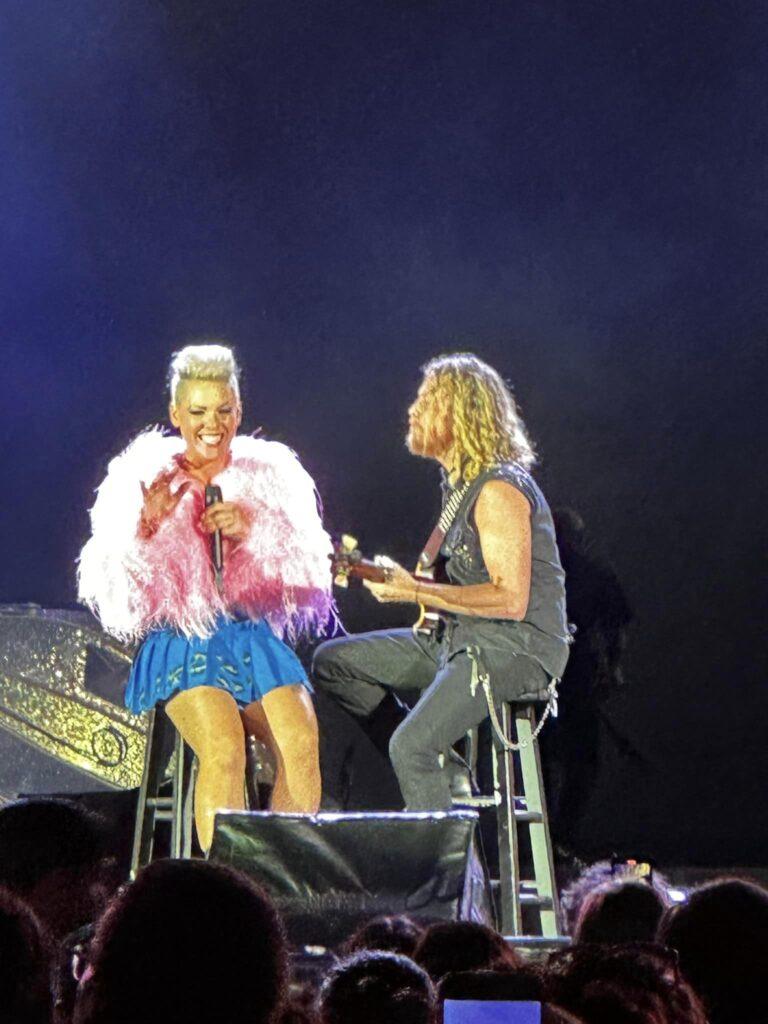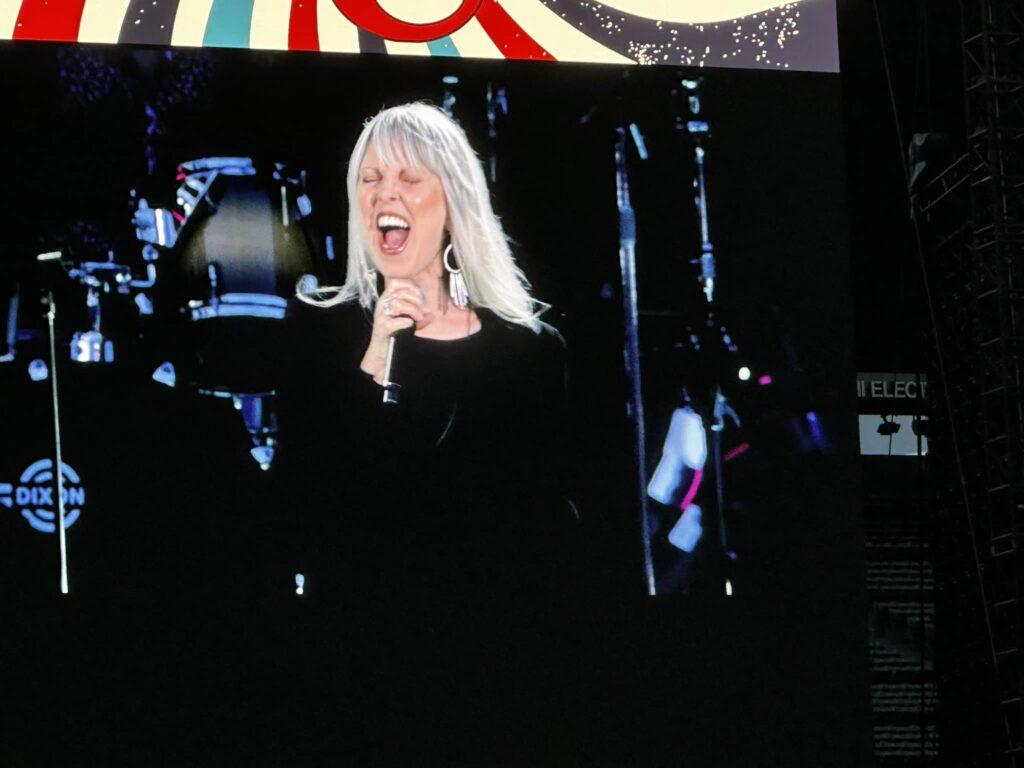Introduction by R. B. Wood
The world is burning.
Professor Papernick is a teacher, an author, a mentor, and a friend. I met him during my tenure at Emerson College studying for my MFA. When I first met him, his intensity and focus scared the living hell out of me. Which, of course, meant that I had to get to know this man. Since I graduated, Jon and i became friends–I love passionate people and Jon is both passionate and pragmatic. We would talk for hours about writing, movies, television, the writing industry, and so much more. The story that follows is one he wrote years ago, but will resonate with what’s happening in the world today. Among Jon’s many passions is his Jewish faith and I felt that An Unwelcome Guest would be a way to showcase my friend’s passion and pain regarding the state of the world in the fall of 2023.
An Unwelcome Guest
Yossi Bar-Yosef felt his young wife Devorah stir in sleep. He rolled over in bed, felt her warm breath against his face and lay watching her until she was still again. Then she slept quietly. A large round moon hung low over Jerusalem, its white light spilling into their Muslim Quarter apartment. He sat up in bed, reached for his kippah on the nightstand, and placed it on his head. The night was silent in contrast to the chaos of the day; Arab merchants hawking fruits and vegetables, pilgrims shouting prayers and curses, army patrols strolling through the narrow stone streets. Now he could only hear his wife’s even breathing and the two soldiers joking quietly in Hebrew beneath their bedroom window. In a few hours the muezzin would call the Ishmaelites to prayer for the first time in the new day.
He got out of bed and made his way to the kitchen by moonlight, nearly skipping all the way in his bare feet. It was the month of Tishri and the stone floors were chilly even for early autumn. He filled a pot with water, lit the gas with a match, and stood by the stove for a moment thinking of his wife, his Devorah Bee: her soft olive skin, her curly brown hair, her green eyes, the way her body felt beneath his.
“You are welcome,” the Arab man said, startling Yossi. “Welcome. Have a seat,” he said gesturing to the empty chair at the kitchen table. “Welcome,” the Arab man said again, smiling.
Yossi did not wonder how the old man had crept past the soldiers in the street, nor did he wonder how he had found his way through the locked door. He had waited every Passover for Elijah the Prophet to arrive and drink his cup of wine, and he prayed daily for the coming of the
Messiah. Yossi knew that many people wandered the dreamy moonlit paths between sleep and prayer in this golden city of light and stone.
The Arab may have been sixty-five or seventy years old. His face was cracked like a wadi in the heat of summer, his nose round, bulbous, and pocked like a Judean hilltop, his thin salt and pepper mustache ratty, careless, a goatherd’s mustache. He wore a black and white checked kaffiyeh on his head and a filthy striped caftan that reached almost to his slippered feet.
“Sit,” said the Arab man in English. “We will share some tea and nana.” “What do you want here?”
The Arab man said nothing.
“My wife. She’s sleeping.”
“She sleeps like a baby.”
The thought of someone invading his new wife’s privacy, someone even imagining Devorah asleep infuriated Yossi. He took a step forward and whispered through his teeth, “Get out! Why are you . . .”
“The water is ready,” the Arab man said, cutting Yossi off.
Yossi turned his attention to the pot. The water bubbled over, hissing against the stove’s flames.
“My name is Ziad.”
“Who are you?” Yossi asked.
“I am Ziad Abu Youssif.”
“You are in the wrong place. This is a private home,” Yossi said, returning with the pot of water.
The old man only straightened his kaffiyeh on his head, smiled, and reached for a glass. He poured himself some water and said, “You are a rabbi?”
“No. No. I am studying. Near the Kotel.”
The Arab man smiled a brown-toothed smile. “So you are a rabbi.”
“I’m not a rabbi yet. I am studying,” Yossi said, and then asked, “Why are you here?”
“This is my home, rabbi,” the Arab man answered in an even tone. “A tea bag, please.” “Your home?” Yossi said, surprised. “This is my home.”
“How long have you stayed here?” the Arab man asked.
“Eight months.”
“You are just married?” the Arab asked, taking a tea bag from a tin on the table. “Where are you from?”
“New York,” Yossi answered.
“I was born in that room, where you sleep. My first son, Youssif, the dark one, was born in the same room. My father was born where you are sitting. This was not always a kitchen.”
“If this is your house what color are the tiles on the floor of my bedroom?”
“The Jews are always changing things.”
They sat in silence while their tea brewed in front of them. Then they drank. After a moment
Yossi bit his lip at the corner, about to ask, “Why did you leave?” but before he had a chance, the old man said, “There were wars.”
Yossi knew that many Arabs had fled Israel in 1948 and again during the Six-Day War. He had seen the squalid refugee camps and the anguished faces on his TV set, but he also knew the names Khmelnitski, Babi-Yar, and Auschwitz like a mantra. After a moment he said, “Abraham is your father as well as mine.”
The old man did not seem to hear as he bent over to pick something up off the floor. It was a small wooden box. The Arab carefully placed it on the table between them. Yossi swallowed hard and thought about calling to the soldiers outside the window, but knew it would be useless. The bomb would go off before they could make it halfway up the stairs.
It had only been eight months since he and Devorah had stood under the huppa, only eight months since he had first kissed her after stomping the traditional glass representing the fragility of life, eight months since he had first touched his virgin wife. That was supposed to be the beginning; a family, a Jewish family in the heart of Jerusalem, and now, they were about to be blown to bits like that bus he had seen smoldering in the spring rain on Jaffa Street.
The Arab man undid a small latch and folded open a backgammon board.
“You play shesh besh?” he asked.
Yossi looked out the window and could see the moon higher over the city now, its light so bright, the face of the moon almost pulsing. “It’s the middle of the night.”
The Arab began setting up the board, the white stones first, then the black stone disks in their places.
The old man took the last sip of his tea, “I will play you for the house. If you lose, I will live here again. If I lose, I will return to the Street of Chains begging for baksheesh.”
Yossi was not interested in hearing about a broken man begging for shekels. He said, “No,” and then said, “no,” again.
“I am joking, of course,” the Arab man said. “We will play for the right to speak.”
Yossi would not get back to sleep now. He could feel his blood boiling through his body, his hands shaking, the small hairs at the back of his neck standing on end. “Okay. I’ll play. Just let me check on my wife.”
“But, it’s your turn to roll.” The Arab man had already rolled the first die: a four.
Yossi imagined his Devorah Bee curled up in bed, wetting her lips in sleep, kicking her leg against a bad dream. He thought of her slightly rounded belly and the child swimming within it. He stood halfway up from his chair, then picked up the die and rolled a three.
“My move first,” the Arab man said. “Some more tea.”
The old man rolled a six and a one. He moved the black stone to his side of the outer board, covering it with the one. Yossi rolled a two and a one. Already, one of his stones was unprotected. The Arab picked up the dice in his large hands and rolled. Then Yossi rolled. Only the sound of the dice clicking against the wooden board could be heard above the old man’s labored breathing.
“Do you speak Hebrew?” the Arab asked.
“To read the Torah,” Yossi answered, head down.
“Tell me, Rabbi, how did you get here?”
Yossi tried to move his two white stones from the inner board but could not. His pieces were almost entirely blocked in. “Why here?” the Arab said.
“‘If I should forget thee, O Jerusalem, may my right hand forget its strength.’ Tehillim. Psalm One thirty-seven,” Yossi said.
“I do not forget,” the Arab man said, holding out his right hand.
Yossi did not look up from the board and said matter-of-factly, “This land was given to us by God. It was given to us in trust to take care of. We are here because we are Jewish. Because the land was promised to us by God.”
The Arab rolled again, saying, “But we are both sons of Abraham.”
Yossi rolled quickly and made his move. His mind was not on the game now. The Arab rolled the dice again.
“Abraham was the best of men,” Yossi continued flatly, “But he contained some bad elements as we all do and those elements came out in his son Ishmael. He was the son of a slave girl. A wild man.”
The old man’s stones were all strongly in place on his side of the inner board. Yossi rolled but still could not move his two white stones trapped deep among the Arab’s black stones. The Arab rolled and began removing his pieces from the board. “Beit ‘Itab,” he whispered. “Beit Mahsir,” he said on his next roll. “Deir el Hawa,” he said, removing two more pieces. “Jarash.” “Lifta.” “El Maliha.” “Suba,” he said, winning the game. Yossi cleared the board and began to set up another game.
“Deir Yassin!” the Arab said loudly. “Do you know Deir Yassin, Rabbi?”
Yossi motioned for the man to be quiet, he did not want to wake up his wife. The Arab lowered his voice.
“Do you know of Deir Yassin? No. It was a beautiful little village of orange and lemon trees, almond trees, and date palms on the outside of Jerusalem. Like the others, it is also erased from the face of the earth. Now it is called Givat Shaul. I’m sure you know Givat Shaul.”
He did know Givat Shaul; his wife’s aunt and uncle lived in an apartment not far from the mental institution. He had visited once or twice, but never saw a sign of Deir Yassin.
“You came to Deir Yassin one morning . . .”
Yossi interrupted, “I’ve never been . . .”
“It’s my time to speak. I won the game. Now you must listen.”
Yossi shifted uncomfortably in his chair.
“You came to Deir Yassin, a small quiet village at dawn. You were three hundred men with guns and mortars. You broke into homes, shot whole families, women and children, threw bombs into houses, machine-gunned us, butchered us, raped us. You took prisoners into the streets blindfolded and shot us dead. You left our bodies on the ground. You bound our hands, stripped us naked, put us in trucks, and drove us through the streets of Jerusalem. We were afraid and some of us ran.”
Nonsense! Yossi thought. He had not even received his military training yet. He rolled the wooden die.
“You tried to scare the Arabs out of Jerusalem,” the old man said and straightened his kaffiyeh. Then he rolled a three. It was Yossi’s turn to roll first. The moon had moved behind some clouds, leaving them in almost complete darkness.
“Do you have a candle?” the old man asked.
Yossi stood up in silence, walked to the pantry, and returned with two Shabbat candles. He lit them.
“We’ll play until the winner of three,” the Arab said.
This time Yossi was determined not to get caught in the back of the board. He would rush his two white stones out from the very start and race the rest of his stones around to his side before the Arab could do the same. Yossi rolled, and then the old man, and then Yossi. They moved quickly, sliding their stones around the board, hypnotized by the rhythm of the rolling dice. He was so busy concentrating on the board that he did not notice the old man had been speaking in Arabic. Smelling tobacco smoke, Yossi looked up from the table to find three more Arab men sitting on the kitchen floor beside the old man. He grabbed the table, nearly knocking the board to the floor as he tried to stand up. But he was unable, paralyzed in his seat. Two men slightly younger than Ziad wore kaffiyehs and took turns smoking from a tall gold-plated water pipe, a third ancient man with a battered fez planted on his head awkwardly fingered a set of worry beads. Yossi could still hear the soldier’s radio crackling faintly outside his kitchen window.
“Do not worry,” Ziad said. “We are old men. There is nothing to fear. They are only my brothers and our blind father. Do not worry. Please. Please play.”
The four men continued to talk in Arabic. Yossi, not understanding Arabic, did not know what to do. He took a deep breath but still could not fill his lungs.
Ziad asked Yossi, “Do you smoke the narghile?”
“No. No.” Yossi said coughing. Then he remembered his pregnant wife as smoke filled the kitchen. Yossi excused himself.
From the bedroom doorway he saw Devorah asleep as before, her long hair splashed out onto the pillow. Yossi sat on the bed for a moment looking at her. Moonlight shined through the window and lit up her face. He kissed his index finger and touched it to the end of her nose. “Sleep tight, my Bumblebee,” he whispered and opened her night table drawer, removed his wife’s mini 9 mm pistol, and placed it in his side pocket. Then he closed the bedroom door tight and hurried back to the kitchen half afraid of the encroaching Arabs, half determined to prove that he could win the game.
“She is sleeping?” Ziad asked.
Yossi nodded his head and sat down at the table.
“I shared that room with my brothers as a child,” the old man said.
Yossi rolled the dice, ignoring him.
“There was a pomegranate tree at the window. My son Youssif liked to climb in it.”
“It isn’t there anymore,” Yossi said, rolling a three and a one. He moved his first lone stone four spaces and said, “The tree is gone. There is no tree.”
“I am just remembering,” the old man said.
Yossi’s white stone was open at the edge of the outer board one space short of safety. The old man paused a long time before rolling the dice again. With the moon high above the apartment the three Arabs sat cross-legged on the floor; two of them passing the water pipe back and forth between them, the older man continuing to fumble with his worry beads. It was only now with the moon out of the clouds that Yossi noticed the blind father’s empty eye sockets.
“How would you feel if someone took that glass of tea from you?” Ziad asked. “This glass?” Yossi said.
“Yes. That glass,” the Arab said, rolling the dice.
“I would get another glass.”
The old man rolled and promptly hit Yossi’s single stone, removing it to the center bar. Yossi rolled, and entered in the fourth slot, moving his other lone piece from the first to third slot. His two stones were now open at the back end of the board. The Arab rolled again and Yossi found his stone back on the bar with the fourth and sixth slots occupied. He rolled a two and a three. His stone came off the center bar, but Yossi’s stones were still hemmed in.
The Arab asked, “How old is your wife, Rabbi?”
“Nineteen,” Yossi answered.
“And what is her name?” the Arab asked, rolling and knocking Yossi’s stone to the bar again.
Yossi did not answer.
The game continued, and Yossi’s stones were alternately knocked onto the center bar as the old man removed his pieces from the table two by two, whispering in Arabic. The Arab men on the floor clapped their hands on each other’s shoulders—the blind old man mumbled something in Arabic that could have been a prayer.
“I’ve had enough of this. I’m going to sleep,” Yossi said. He had not removed any of his stones from the table.
“But you can’t. Nobody has won three games. Sit. Sit. I won the second game.”
One of the Arab men got to his feet, a silver sheath shining among the folds of his caftan. Yossi fingered his wife’s pistol in his pocket and said, “Okay. We’ll play another game.”
The old man picked up the stones in his hands and began chanting quietly the names he had just whispered, “’Allar; ’Artuf; Beit Naqquba; Deir Aban; Ishwa’; El Jura; Kasla!” Do you know of the village of . . .”
“All right. It’s time to play,” Yossi said.
Yossi began setting up the board.
They played on, the dice rattling against the old wooden board. The men on the floor were anxious, groaning in discomfort with every move, shifting from one knee to the other. Yossi blocked the men from his mind, focusing only on the board. When he had established a lead he looked and flashed a confident wink at Ziad. The old man sat calmly, pondering his next move. Then he called out a question in Arabic and was answered by a woman’s voice.
Four Arab women dressed in black stood over the kneeling men. One wore a hijab over her face, the other three sternly looked on. One of the women spoke loudly in guttural Arabic. The old man listened and turned to Yossi, who was beginning to remove his stones from the board.
“My wife, Zahira,” Ziad said.
Yossi continued to play, ignoring her. His only interest now was to beat the old man, throw the Arabs from his home, and return to bed with his wife.
“These are my brothers’ wives. And,” he said, pointing to the tiny woman in the hijab, “this is our mother.”
“It’s your move,” Yossi said.
The old man rolled. He had twelve stones left on the board. Yossi had six and rolled low but still removed two stones. The woman who had spoken to Ziad, pushed her way forward and placed her hands on the table. Yossi saw the black under her fingernails, her eyes cold as the chipped stones on the board. Her face had the worn look of an old leather saddle. He rolled double four and won the game. The woman grabbed up the pieces and began to quickly reset the board. Yossi tried to place his hand on top of hers. She pulled away.
“Hevron!” he said, making eye contact with all the Arabs except the blind father. “We were neighbors in Hevron and you came to our homes,” Yossi said, borrowing the tone of the old man, Ziad. “And you raped us, burned us, chopped off our hands.”
“That is not true,” the woman said.
“It is true,” Yossi said.
“Liar!” the woman said louder.
“You were not born then,” Ziad said.
“You came to our homes in the City of the Patriarchs . . .” Yossi said. “Isra-ay-lee pig!” the woman yelled. “Liar!”
“. . . and tore us apart like fresh bread,” he added.
“Arrogant Jew. Liar. Zionist,” the woman shouted and the men joined in shouting, knocking against the table. The woman stood face to face with Yossi and said, “You have no place here. Pig!” Then she spat in his face.
Yossi reached into his side pocket, pulled out his wife’s pistol, and jammed it hard beneath the woman’s ribs, doubling her over momentarily. He felt her soft stomach rebound against his hand.
“Quiet!”
The men moved back, but Zahira, the wife of the old man Ziad, stood her ground. “Put your toy away, yeled.”
“It was a long time ago,” the old man said. “It was only sixty years ago,” Yossi said.
“You were not born. You were not there,” the old man said.
“Memory is in the blood,” Yossi said. “I was there as I was at Sinai to receive the commandments. I was exiled from Spain. I wandered. And I remember pogroms beyond the Pale and the killing. I remember. And the camps, I remember that, too. Jews have been in Hevron since the time of Abraham. You have only lived there since the thirteenth century.”
He waved the pistol at the Arabs and tasted blood in his mouth, sour and metallic. He wanted to lay the Arabs face down on the floor with their hands behind their backs, and fire a bullet into the brain of each. He would clean the floor with the old man’s kaffiyeh and return to bed with his wife.
Zahira stepped closer, her weathered face inches from his. “Okay, boy,” she said. “Shoot me.” She pulled his pistol closer to her stomach. Yossi’s hand was compliant. “I am all used up,” she said. “Make me a martyr of the great battle.” The men looked on impassively, the women stood stone-faced, Ziad, too, stared expressionless. “I am the mother of generations. But now I am finished. I am the husk of a pomegranate, my seeds have been scattered and grown. Shoot me. I am only a husk.” Yossi pushed his pistol into her stomach and then pulled it back.
“Sit. We’re going to play again,” Yossi said.
The men sat, and the women did too.
Zahira reached forward and touched Yossi’s cheek and said, “You are weak and sad.”
“We will play?” Ziad said.
“Do not fear us,” Zahira said. “We are old and not to be feared. But fear our children. Fear my son Youssif. He will burn your crops, tear down your home, and eat the flesh of your children.” Yossi rolled the dice.
“He will eat the flesh of your children,” she repeated.
They began to play again, the Arab leading two games to one. The sky was turning from deep black to dark bruised blue. The moon was gone. Yossi slipped the pistol back into his pocket.
“The tea. It is cold,” the old man said.
Yossi stood up to boil another pot of water, then returned to his seat and rolled the dice. He opened with a solid four and two, occupying the four slot on the inner table.
“My sweet wife was beautiful as a flower,” Ziad said. “We married when she was fifteen. Her lovely name means flowers.”
The old man rolled and Yossi turned to the woman.
“I brought her to the place to take her gift, and my father and uncles waited outside the room with stones and knives—if she was not a virgin. But there was blood.”
Yossi remembered his wife’s red blood on the white bedsheet and the feeling that she was truly his.
“It hurt her and she cried and cried for days, did not stop.”
Yossi rolled again.
“And we prayed that, Inshallah, we would have a strong boy who would not cry,” Zahira, the old man’s wife, said.
“And when he was born he cried,” the old man said. “He cried for Palestine, and the bloodstained mountains, and the crying seashores. And I slapped his face and shook him and said, ‘Do not be weak! You are an Arab!’ And Youssif grew to be an angry barefoot boy.”
The old man rolled and Yossi watched him slide the stones around the board with his rough fingers. The smell of hashish mixed with the smell of tobacco filled the room. Yossi was afraid to look up, feeling the weight of claustrophobia on him. He just stared at the board and at the old man’s chipped black stones.
“It’s your turn,” the old man said.
The room was jammed with Arabs. The children had arrived. Eight young men with thick hair and mustaches crowded around the table with the others. Yossi could feel one of the newcomers breathing at his neck. Some drank beer from brown bottles, others smoked. They were all slim and strong and Yossi was afraid. The kitchen was so crowded that the Arabs pressed right up against the table and chairs.
“I need room,” Yossi said and the woman called out “Lebensraum?” and laughed. “I need room,” Yossi said again, but the Arabs either could not or would not move. Then he thought of his wife alone in the bedroom and wanted to run to her.
“It’s your turn,” the old man said. Yossi stared blank-faced. “My sons,” the old man said. “And my brothers’ sons.”
“I don’t want to play.”
“But you must. We are the majority,” the Arab said.
Yossi wanted to call the soldiers down below, but couldn’t raise his voice to speak. His wife’s pistol in his pocket comforted him, but he knew he would never use it. He rolled again. Then the old man rolled. The young Arabs pressing in toward the table kept a running commentary of the game in Arabic. One imitated the sound of the clicking dice with his tongue. Yossi rolled again and he was leading. He removed his first stone from the board. The old man held up his empty cup and said, “Your pot is burning.” Black smoke rose from the stove.
“Your house is on fire,” the woman said.
Yossi pushed his chair back into one of the Arabs, stood up and forced his way to the stove. The Arabs laughed, and as he waded through them and tried to pull his kippah from his head, one reached into his pocket. Someone had thrown a dish towel into the flame. Yossi dropped it into the sink with the blackened pot and turned on the water.
“Some more tea,” the old man said in a cracking voice.
When Yossi returned to the table his white stone was on the bar and six or seven of the Arab’s stones had been spirited away without even a single roll of the dice.
“Where is the tea?” the old man asked.
“There is no tea,” Yossi said. “Put the stones back or I won’t play.”
“All right. I will put them back and you will play.”
“Where is your toy?” the woman asked.
Yossi felt his side pocket. His wife’s pistol was gone and had been replaced with a slab of olive wood. Yossi’s head felt light and then heavy.
“You will play now,” the old man said.
Yossi’s stomach churned and his mouth tasted bitter, acidy. With the pieces back in place, he rolled again, more determined than ever to beat the Arabs. “When I win you’ll give me back my gun,” Yossi said.
“You still don’t understand. We make the rules,” the old man said.
Yossi bit his lip and rolled again—double four. A lucky roll. Five stones left. The room still smelled of hashish now mixed with body odor and Yossi’s head felt too heavy for his neck. The Arabs rolled. Then Yossi—two more stones off the board.
“Which one is Youssif?” Yossi asked.
The young Arabs laughed and one called out, “Youssif no home.”
“Youssif is not here yet,” the old man said.
Yossi put his hand to his forehead and rolled again—two more stones.
“You have won,” the old man said, picking the last stone off the board with his battered fingers. “Now tell me of the six million, or some other lies, rabbi.”
“Tell me, Jew,” the woman said. “Tell me some more fairy stories.”
Yossi remembered the burned out carcass of the bus on Jaffa Street, the shattered glass, the body parts scattered in the street. The bomb blast had woken him and Devorah in their apartment within the walls of the Old City. He had rushed from their bedroom to see, arriving while the acrid smell of burning flesh was still thick in the air.
“Bus number eighteen. I was there when the second bus blew up.”
“Good. We have a bomb-maker here,” the woman said, pronouncing the second ‘b’ as she pointed to the young Arabs.
“He’s a terrorist and should be killed,” Yossi said, remembering the Hesed shel Emet workers cleaning flesh from the statue of the winged lion who sat perched atop the Generali Building.
“That is not very humane. Does your Torah allow that, Rabbi?” the old man said, setting up the board.
“The Torah of Israel has nothing to do with being humane,” Yossi said. “This is the land of Isaac and Jacob. This is the land of my fathers and the land of my children and it will be the land of their children. This is our land. The land of Israel. The land of the Jewish people. I don’t give a damn about your orange trees and date palms and pomegranate trees. You do not belong here. You are Amalek. I should have poisoned your tea.”
“You should have,” the old man said. “But your right hand forgot its strength.”
“What?” Yossi said, stunned.
“I have read your books, Rabbi. Does it not say, if someone is going to kill you, it is your duty to rise early and kill him first? Yes, I am Amalek and you are not welcome here. You have scattered my children, chopped down my trees, thrown me from my home,” the Arab said. “I am a son of Ishmael and you are a son of Isaac. But for that, we are not enemies. We are enemies because you came to make a family in Al-Quds. The land of Palestine is an Islamic holy possession, given to
future Muslims until Judgment Day. You are a cancer and you must be cut out.” The Arab paused for a moment. “Now it is your turn to roll again.”
Before Yossi had a chance to reply, he heard what sounded like a window smashing in his wife’s room, the glass shattering onto the stone floor. Yossi’s stomach turned. He tried to stand up but was forced down by his shoulders.
“Help!” he called, before the old man pulled off his checked kaffiyeh and stuffed it into Yossi’s mouth with the help of his laughing nephews.
“If I forget thee, let my tongue cleave to the roof of my mouth,” the old man said, shaking his head.
“Psalm One thirty-seven,” Yossi thought, sickened.
Yossi could hear someone stepping through the broken glass. His wife, in a panic would rise in search of her gun, pull open her night table drawer and find it empty. The taste of the dirty kaffiyeh in his mouth made Yossi want to throw up.
“Hacol b’seder?” a soldier called from beneath the kitchen window.
“B’seder,” one of the Arabs answered.
“Lo b’seder,” Yossi thought in Hebrew. “It’s not okay. There are Arabs in my kitchen!” “Tov,” the soldier said. Then there was silence.
The old man placed the dice in Yossi’s hand. He dropped them onto the board.
“A good roll,” the old man said moving Yossi’s pieces around the table. “Do you have mazel tonight?” the Arab man said mockingly.
The sky outside the window was turning quickly from a deep blue to a glowing purple. The bald old man reached into his caftan, removed Devorah Bee’s mini 9 mm. pistol and placed it onto the table. Yossi struggled but could not move. He was held in place by three of the young Arabs. “My children studied at the revolutionary school. They drank anger and ate fury and threw stones.
But they are not just bomb-makers and pickpockets. They will be the leaders of this land.” The old man prodded the pistol with his index finger and spun it on the board. There was an inscription on the handle.
“What’s this?” the old man said, “‘DARLING DEVORAH: FOR A SAFE LIFE IN JERUSALEM. LOVE DADDY.’ A thoughtful gift, and practical, may it protect her from all harm. And a very pretty name. What does Devorah mean?”
Yossi blinked his eyes hard and fast as if he were trying to say, “Fuck you. Fuck your mother you filthy Arab.”
The woman picked up the gun and held it against Yossi’s temple. Then she pulled his kippah from his head and dropped it to the floor. “It is almost time to pray,” she said.
Yossi prayed to his God, wishing Moses had never led his people out of the wilderness, wishing that he had never come to this violent desert land, wishing that he and Devorah were safe in bed back in New York.
The old man looked on, his big eyes pitying, his pink peeling head almost glowing as the sun continued to rise.
Yossi looked at the woman, her face as hard as fire-forged steel. And then the muezzin cried, calling the Arabs to prayer. “Ull-aaaaaaw-hoo-Ak-bar! Ull-aaaaaaw-hoo-Ak-bar!” And the unwelcome guests, as surprisingly as they had arrived, began disappearing into the blue morning light. The blind father, the wives, the mother, the woman, the sons, and the nephews dropped to their knees, foreheads on the floor. And were gone. The old man, too, climbed from his chair and vanished. Yossi pulled the dirty kaffiyeh from his mouth and ran to the hallway, his heart breaking in his throat. The bedroom door opened and out stepped Youssif, a tall handsome Arab in a sweater and slacks. He held a broken bottle in his hand.
Youssif stepped past him, dropping the bloodied bottle to the floor.
“She is not dead,” Youssif said. “She is only crying for the ghosts of her children and their children, too.”
The sun continued to rise, the muezzin wailing in Arabic, “There is no God but Allah and Muhammad is the messenger of Allah.”











